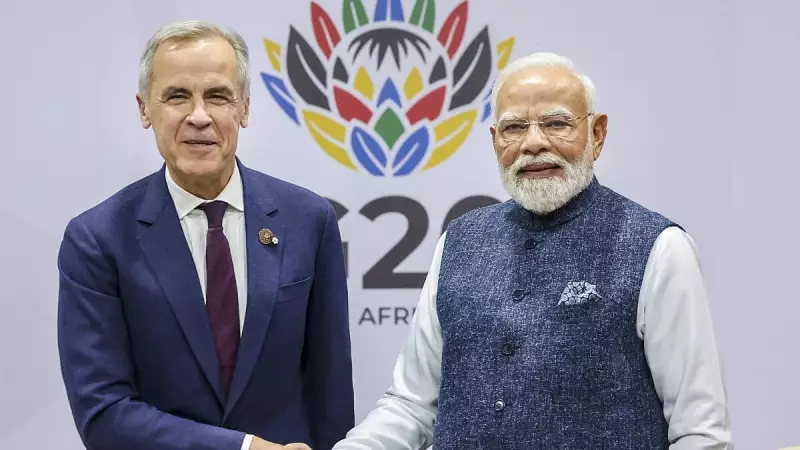
India and Canada have officially launched negotiations for a Comprehensive Economic Partnership Agreement (CEPA), marking a significant milestone in their bilateral relations. The ambitious talks, spearheaded by Prime Minister Narendra Modi and former Bank of England Governor Mark Carney, aim to dramatically increase annual bilateral trade to $50 billion by 2030.
Strategic Partnership Takes Center Stage
The CEPA negotiations represent a strategic deepening of economic ties between the two nations. Both countries have set an ambitious target of increasing bilateral trade from the current levels to $50 billion annually within the next six years. This represents a substantial jump from existing trade volumes and underscores the commitment of both nations to strengthen economic cooperation.
The talks gained momentum during high-level discussions between Indian officials and Mark Carney, who serves as the co-chair of the Bloomberg Taskforce on transition planning. The involvement of such high-profile financial leaders highlights the importance both nations place on this agreement.
Comprehensive Scope of Negotiations
The CEPA negotiations will cover a wide range of economic areas beyond traditional trade in goods. The agreement is expected to address services trade, investment facilitation, and digital commerce, creating a comprehensive framework for economic cooperation.
Both nations recognize the complementary nature of their economies. India offers a massive consumer market and manufacturing capabilities, while Canada provides advanced technology, natural resources, and expertise in various sectors. This synergy forms the foundation for the ambitious trade growth targets.
The timing of these negotiations is particularly significant as both countries seek to diversify their trade partnerships and build more resilient supply chains in the post-pandemic global economy.
Broader Economic Cooperation Framework
Beyond the CEPA talks, India and Canada are exploring cooperation in several key areas. Discussions have included collaboration on energy transition, sustainable finance, and climate-related financial disclosures. These parallel initiatives demonstrate the comprehensive nature of the evolving partnership.
The involvement of financial leaders like Mark Carney brings expertise in sustainable finance to the table, potentially making this partnership a model for how emerging and developed economies can collaborate on climate and economic objectives simultaneously.
Both countries have expressed commitment to creating an agreement that not only boosts trade but also promotes sustainable development and creates employment opportunities in both nations.
Path Forward and Expected Outcomes
The launch of CEPA negotiations signals a new chapter in India-Canada relations. The $50 billion trade target by 2030 provides a clear roadmap for negotiators and sets ambitious but achievable goals for both economies.
Successfully concluding these talks would position Canada as a key strategic partner for India in North America, complementing India's existing trade agreements in the region. For Canada, it represents an opportunity to deepen engagement with one of the world's fastest-growing major economies.
The negotiations are expected to proceed through multiple rounds over the coming months, with both sides expressing optimism about reaching a mutually beneficial agreement that will serve as a foundation for long-term economic partnership.





